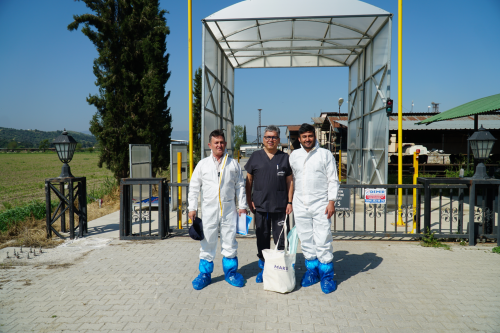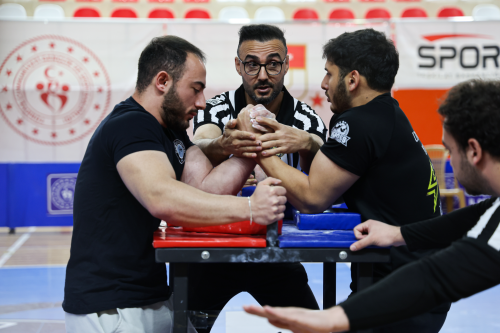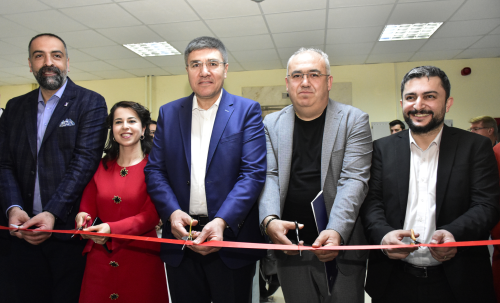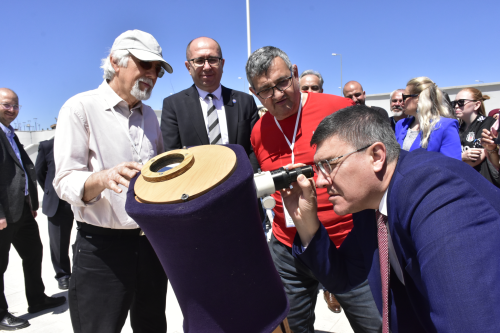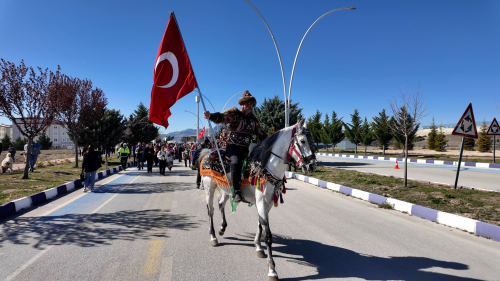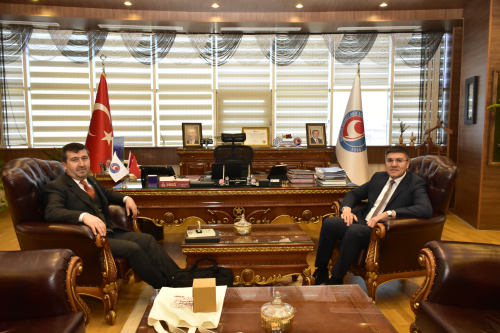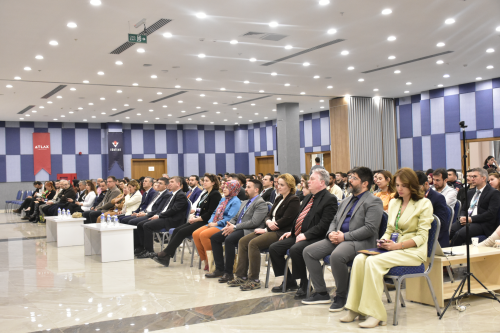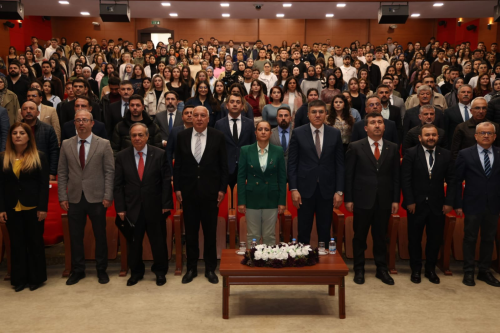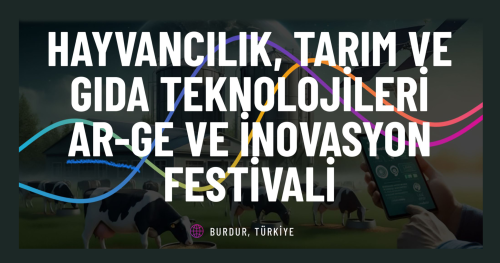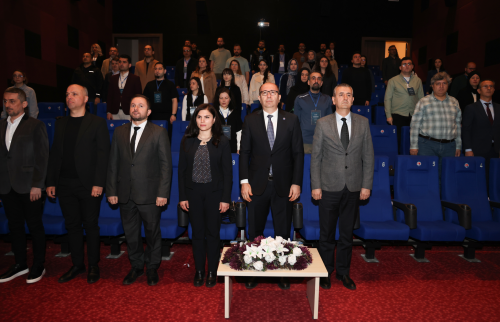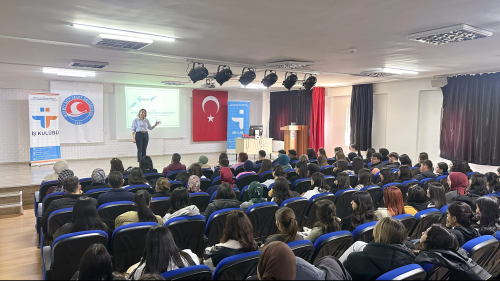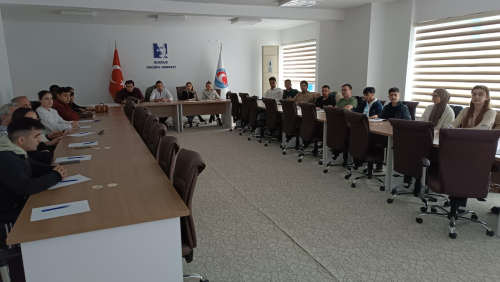The 1st Yörük Workshop at MAKÜ was the scene of colorful images
Yayın Tarihi | 17 April 2025, Thursday
The 1st MAKÜ Yörük Workshop, organized by Mehmet Akif Ersoy University (MAKÜ) Turkish Music State Conservatory, with the theme 'Traditional Folk Dances and Cultural Transmission', attracted great interest in Burdur. The event, held on April 17-18, addressed the rich heritage of Yörük culture from both academic and artistic perspectives.
A festival starting with migration
The workshop began with a symbolic Yörük migration. This traditional walk, animated with donkeys, camels, horses, and sheep, took participants, dressed in Yörük attire, and students on a journey back in time within the campus. The migration started from the dormitory area and ended in front of Avşarhan. The event officially began with a prayer in the Yörük tents set up in the area.
A culture blended with folk dances
While the students of Çatağıl Primary School, who won first place in the inter-primary school folk dance competition, took the stage, the World Champion MAKÜ Folk Dance Team then performed a magnificent show. The traditional 'log throwing' ritual, the lighting of the 'Yörük Torch', and the 'keşkek pounding' tradition brought cultural life back to life.
The meeting of academia and tradition
The workshop sessions took place at Avşarhan Conference Hall. Opening speeches were made by Burdur Governor Tülay Baydar Bilgihan, MAKÜ Rector Prof. Dr. Hüseyin Dalgar, and Workshop Chairman Assoc. Prof. Dr. Zeynel Turan. A Yörük scarf was presented to the protocol by Burdur Yörük Association President Alaaddin Kalkan.
In his opening speech, Assoc. Prof. Dr. Zeynel Turan emphasized the importance of preserving and transmitting Yörük culture to the future, saying, “Such workshops are of great importance for the healthy transmission of our cultural heritage to younger generations.” Turan highlighted that folk dances and music are the cornerstones of social identity.
Yörük Culture sheds light not only on the past but also on the future
In his speech at the workshop, Rector Prof. Dr. Hüseyin Dalgar emphasized that Yörük culture is not only a heritage of the past but also a philosophy of life that can inspire today's world. “Today, we are not just holding a workshop here. We are also tracing a culture that is proud of its past, living in its present, and walking towards the future with hope.” Dalgar, who stated that the simple lifestyle offered by the modern world under the name of 'minimalism' has actually been lived by the Yörüks for centuries.
Dalgar, who pointed out that Yörük culture carries wisdom that can answer today's problems with its friendship with nature and understanding of freedom, said, “For the Yörük, wealth is not hidden in property; it is hidden in freedom,” stating that this lifestyle is not just a nostalgic value but a strong resource for the future.
We must raise young people who draw strength from their roots
Rector Dalgar, who emphasized that young people should not only learn this culture but also internalize it as a way of life, said, “This is not to say to our young people 'live like this'; it is an effort to raise individuals who are nourished by their own roots, in line with the spirit of the time.” Dalgar, who said that the ownership of cultural heritage is the fundamental condition for a society to walk confidently into the future, continued his speech with the following expressions:
“You cannot bear fruit by being nourished from the root of another tree; you need to draw strength from your own roots.”
Yörüks are the true inhabitants of this land
Emphasizing the patriotism of the Yörüks, Dalgar said, “There is a saying: 'When the homeland is in danger, some run home to get their cannon, their rifle; some to get their passport and escape. But we know that the people of this land, especially the Yörüks, have always been on the first side.” His words received great applause from the hall.
Evaluating Yörük culture not only as a tradition but also as a stance and philosophy, the Rector said, “There is a saying that I like very much: 'Don't build a house, you'll have fun; Don't plant a vineyard, you'll get attached; Herd the goat, pull the camel; When it's your turn, you'll become a bey.' This not only tells a lifestyle but also the elegance of a soul, a state of heart.”
Keeping the culture alive is a duty to the homeland
Emphasizing that Burdur is a city of education and culture, Dalgar said that as a university, they consider it their duty to re-evaluate this cultural heritage with an academic perspective and to convey it correctly to new generations. “We are not just public officials; we are children of this land. Keeping this culture alive, telling it, and conveying it correctly to future generations is a duty to the homeland.” he concluded his speech.
This event is a living cultural festival
Governor Tülay Baydar Bilgihan also emphasized in her speech about the event that cultural transmission should be done with the right codes. “This event is not only academic but also a living cultural festival intertwined with the public,” said Bilgihan, drawing attention to the participation of women's cooperatives and the involvement of children and young people in the process.
Sessions with Rich Content
Various sessions were held throughout the two days of the workshop. In the sessions moderated by Prof. Dr. Şekviye Kazan Nas, many experts in their fields, such as Turkey Folk Dance Federation President Hüseyin Güler, artist Sümer Ezgü, Dr. Lecturer Ramazan Tegiz, Prof. Dr. Fatih Uslu, and Dr. Lecturer Hakan Acar, made presentations.
Participants discussed how the unique structure of Burdur's folk dances, traditional costumes, and music can be preserved and transmitted to younger generations. They also exchanged ideas on how the culture can be more effectively represented on national and international platforms.
Appointment for Next September
The event will be crowned with the “Sheep Washing” (Yünüm Böget) event planned to be held in September. The workshop is considered an important step not only for the preservation of cultural values but also for keeping these values alive and sustainable.
Diğer Haberler
